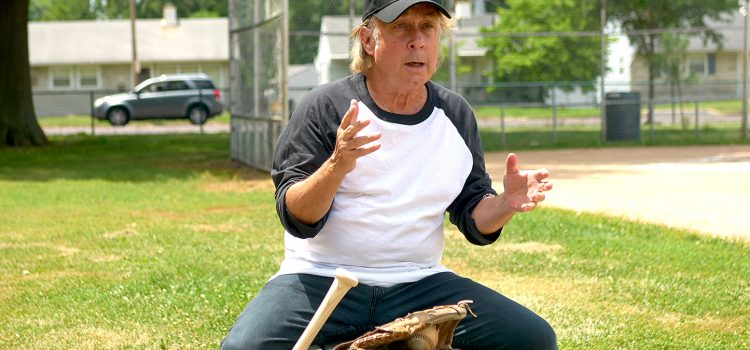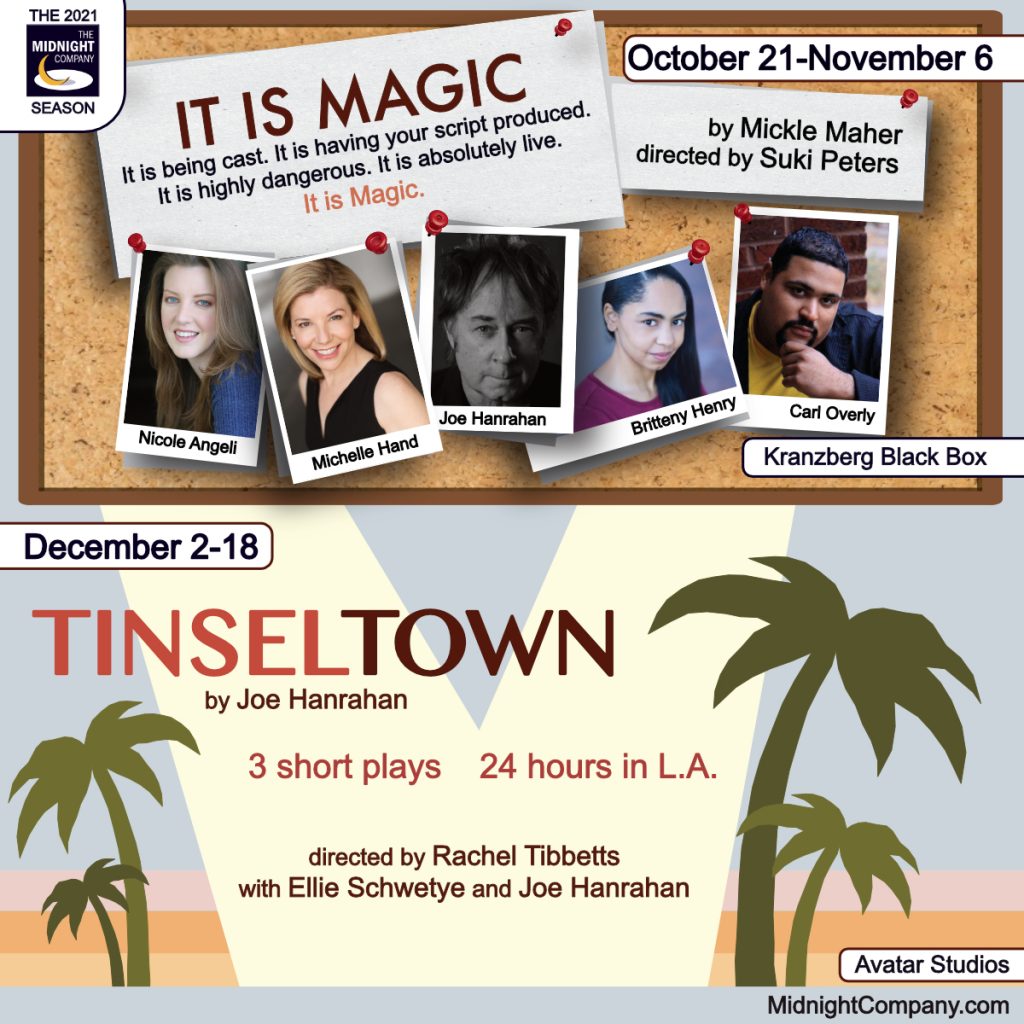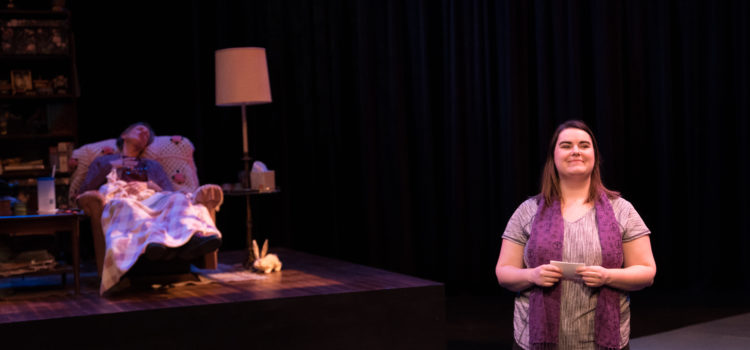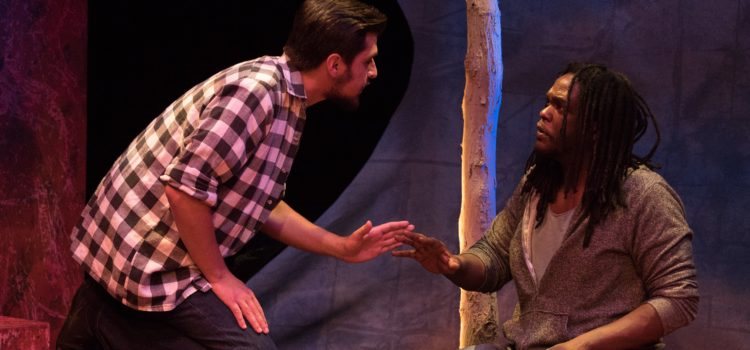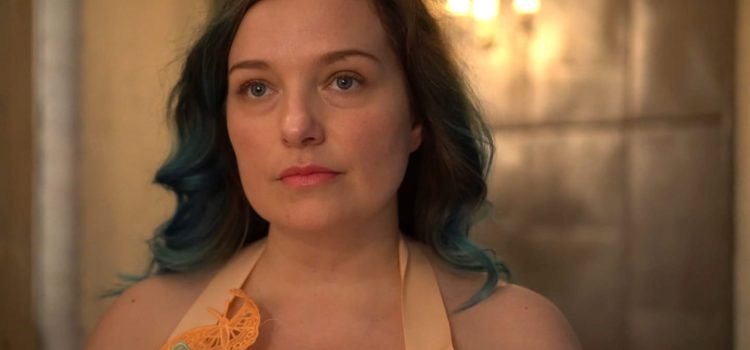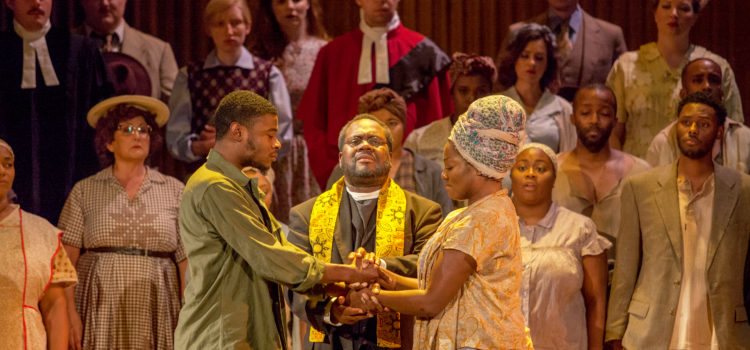Tickets are on sale for The Midnight Company’s St. Louis premiere production of Mickle Maher’s It Is Magic at MetroTix.com. Performances, at Kranzberg’s Black Box Theatre, are Thursdays, Fridays and Saturdays October 21 through November 6, with all shows at 8pm. Tickets are $15 for Thursdays and $20 for Fridays and Saturdays. The production will be following all Kranzberg Arts Foundation safety protocols, including proof of vaccination for entry, and masks at all times.
It Is Magic is a sorrowful and hilarious meditation on the deep, ancient evil at the heart of the community theatre audition process, and an investigation into the mysteries of theatre-making itself. Two sisters, community theatre veterans who’ve never had the chance to contribute artistically, are holding auditions for their adult version of The Three Little Pigs in the theatre basement, while the group’s pretentious artistic director is attending, then avoiding, opening night of his MacBeth on the MainStage above. A third sister appears, and reality becomes really magical at the local playhouse.
It Is Magic premiered in Chicago in May, 2019, and Third Coast Review called it “…one of those love letters to theatre…delightfully wacky,” while New City Stage said “Any show that juggles loving critics and tearing their throats out is good in my book.” Midnight has previously presented two Mickle Maher plays, The Hunchback Variations and An Apology For The Course And Outcome of Certain Events As Delivered By Doctor John Faustus On This His Final Evening.
Mickle Maher plays have Off-Broadway and around the world, and have been supported by grants from the NEA, the Rockefeller MAP fund, and Creative Capital. They include There is a Happiness That Morning Is; Song About Himself; The Strangerer; Spirits to Enforce; Cyrano (translator), The Cabinet; Lady Madeline; The Pine; and An Actor Prepares (an adaptation of Stanislavsky’s seminal book). He is a cofounder of Chicago’s Theater Oobleck, and has taught playwriting and related subjects at the University of Chicago, Columbia College, and Northwestern University. He recently wrote the book and lyrics for a new musical about basketball, commissioned by the Catastrophic Theatre of Houston and Daryl Morey, the General Manager of the Houston Rockets. And he’s currently adapting the graphic novel Berlin by Jason Lutes for the Court Theatre.
Suki Peters will direct It Is Magic. In Spring, 2022, Suki will play the bride in Cherokee Street Theatre’s adaptation of Kill Bill, and she will direct Once for R-S Theatrics. The cast for It Is Magic includes Nicole Angeli as Sandy, desperate to get a part in a play, the part being the lead role of the Wolf in her sister’s play. Nicole was most recently seen in Metro Theater’s It’s A Wonderful Life, in West End’s Photograph 51, and in Stray Dog’s Hedda Gabler and A Doll’s House. Michelle Hand portrays her sister, the first-time, aspiring playwright, Deb. This past year Michelle was in Max & Louie’s Tiny Beautiful Things and SATE’s Zoom show Tonya And The Totes In Subterrstrata. Carl Overly Jr. is Tim in the play, another actor vying for that coveted Big Bad Wolf role. Carl was in recent productions of St. Louis Shakespeare Festival’s King Lear and COCA’s Billy Elliott, and upcoming will direct Rimers Of Eldritch at St Louis University. Chrissie Watkins will be Elizabeth, arriving from seemingly nowhere to land smackdab in the middle of the audition process. Chrissie was seen in Alpha Players’ The Mountaintop this summer. And Midnight’s Artistic Director, Joe Hanrahan is in the role of Mortier Civic Playhouse Artistic Director Ken Mason, as arrogant, self-absorbed and sporadically brilliant as any Artistic Director comes. This year Joe has acted in Midnight productions of Here Lies Henry, and in his own scripts of Now Playing Third Base For The St. Louis Cardinals Bond James Bond, My Violin My Voice at the St. Louis Fringe Festival, and Tonight’s Special at the St. Louis Theatre Showcase. He will next be seen in his new script, Midnight’s Tinsel Town in December.
Linda Menard will be the Stage Manager for the show, Elizabeth Henning is designing costumes, Kevin Bowman is designing the set and lights, and Ted Drury will design sound.
For more information, visit MidnightCompany.com

Lynn (Zipfel) Venhaus has had a continuous byline in St. Louis metro region publications since 1978. She writes features and news for Belleville News-Democrat and contributes to St. Louis magazine and other publications.
She is a Rotten Tomatoes-approved film critic, currently reviews films for Webster-Kirkwood Times and KTRS Radio, covers entertainment for PopLifeSTL.com and co-hosts podcast PopLifeSTL.com…Presents.
She is a member of Critics Choice Association, where she serves on the women’s and marketing committees; Alliance of Women Film Journalists; and on the board of the St. Louis Film Critics Association. She is a founding and board member of the St. Louis Theater Circle.
She is retired from teaching journalism/media as an adjunct college instructor.


